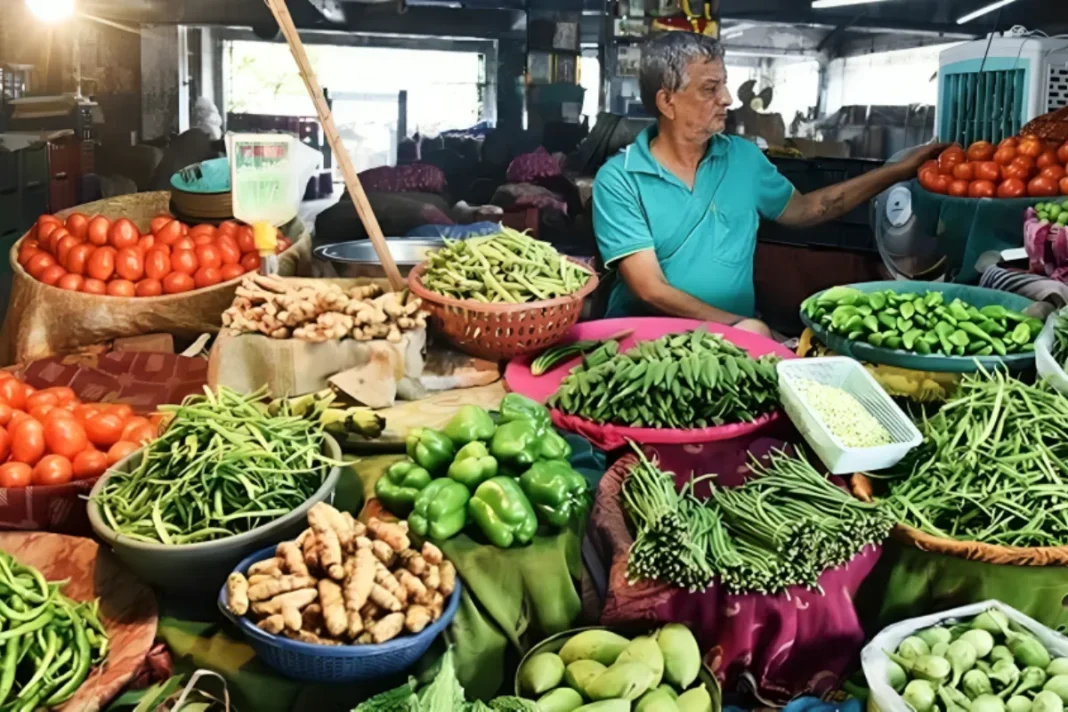India’s retail inflation rate saw a decline to a three-month low of 5.10% in January, driven by slower price increases in certain food items. Despite this decrease, the central bank is expected to maintain interest rates as inflation remains above its target rate.
Economic Insights: January Retail Inflation Data
The latest government data revealed that annual retail inflation eased from 5.69% in December to 5.10% in January, aligning closely with the 5.09% forecast by economists in a Reuters poll. However, the Reserve Bank of India (RBI) opted to leave interest rates unchanged last week, indicating a cautious approach towards rate cuts as it strives to stabilize inflation at 4%.
Food Inflation Trends and Price Movements
Food inflation, accounting for a significant portion of the consumer price basket, stood at 8.30% in January, down from 9.53% in December. Notably, prices of cereals rose by 7.83% year-on-year in January, compared to a 9.93% increase in the previous month. Similarly, vegetable prices saw a slight decrease, rising by 27.03% compared to 27.64% in December.
RBI Outlook
In light of the recent data showing a slight decrease in CPI inflation, it’s expected that the Reserve Bank of India (RBI) will exercise caution in its near-term decisions, particularly in light of uncertainties surrounding food inflation. The RBI’s forecasts indicate an average retail inflation of 5.4% for the current fiscal year, followed by a target of 4.5% for the subsequent fiscal year.
Core Inflation Trends and Economic Growth
Core inflation, excluding volatile food and energy prices, was estimated at 3.6% in January, down from 3.8%-3.89% in December. Despite robust economic growth, housing inflation remained weaker than anticipated.
Impact of Food Price Shocks and Government Measures
Food price shocks, stemming from climate variations and supply disruptions due to geopolitical tensions, have been a primary driver of inflation in the past year. The RBI expressed concerns about the impact of large and repetitive food price shocks on disinflation. In response, the Indian government implemented measures such as lowering wheat stock limits and restricting exports of certain commodities to stabilize prices.
Keep watching our YouTube Channel ‘DNP INDIA’. Also, please subscribe and follow us on FACEBOOK, INSTAGRAM, and TWITTER


